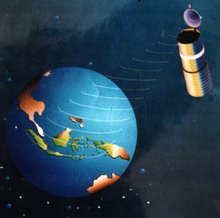
After the conversation in class today I came across this article that actually makes a direct link between the American Enterprise Institute (which I mentioned) and Gore. It seems that today a thinktank linked to the AEI launched a smear campaign against Gore to try to undermine all the positive publicity he received as a result of winning an Oscar. The AEI is heavily funded by ExxonMobil, a company that Gore singled out in his Toronto speech as being particularly cynical in its attempts to misrepresent the facts about global climate change. Presumably Gore has been saying the same thing at his other speeches too. Now ExxonMobil is fighting back but via its proxies (thinktanks, institutes, columnists, etc.).
The website that published the article I link to above is the Huffingtonpost, the most popular news blog on the web. It has a liberal editorial slant and Huffington herself is a key supporter of the campaign for a Gore presidential run. You probably know that the producer of An Inconvenient Truth was Laurie David (married to Larry David), also a Gore supporter and an occasional contributor to Huffingtonpost.
Arianna Huffington, Laurie David, the Academy, and Al Gore are on one side of the battle line. ExxonMobil and its proxies are on the other side. There could be a lot at stake: the American presidency and the climate of public opinion surrounding the climate change issue. In the long run, or perhaps medium-run, how this battle resolves could also have an impact on whether green technologies such as electric cars are promoted or whether they are "killed."
